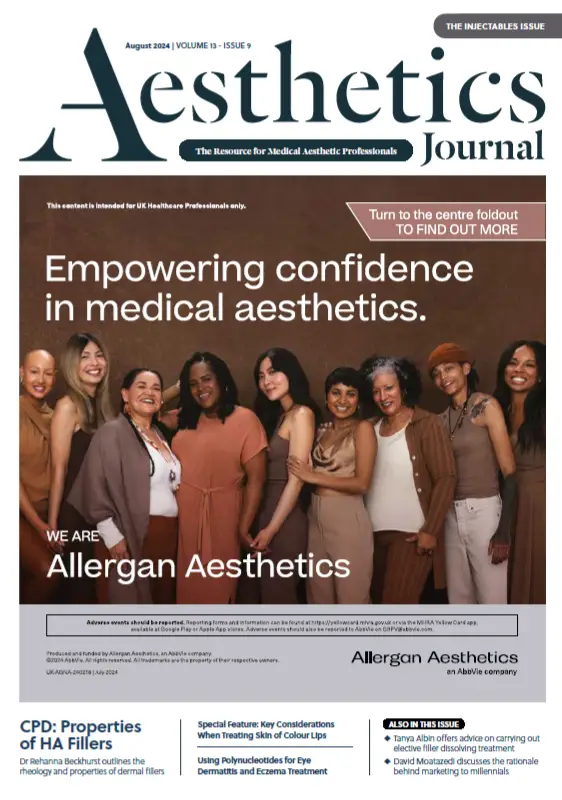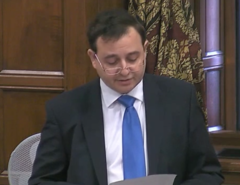South Leicestershire MP Alberto Costa raised concerns regarding the regulation of non-surgical cosmetic procedures in a Westminster Hall debate today, stating that voluntary regulation does not go far enough.
The debate was tabled following concerns raised to Prime Minister Theresa May in the House of Commons regarding MP Costa’s constituent, Rachael Knappier, who last year suffered a complication following a lip filler treatment.
MP Costa highlighted the rise in non-surgical cosmetic procedures as a result of social media and celebrity endorsement and urged parliament to consider the risk to patient safety in an unregulated market.
One of MP Costa’s main concerns was the type of practitioners administering non-surgical cosmetic procedures such as botulinum toxin and dermal fillers. He said, “The mark of a professional in our society is somebody that is regulated, that is trained, qualified, licensed and that has ongoing regulation development. But, in addition to that, in the private sector, they must carry professional indemnity insurance so that people have someone to sue when things go wrong.”
He added that he believes the lack of regulation is an issue that affects all constituents and stated that although there is voluntary regulation in place, it does not go far enough. He said, “I agree that regulation is required and it shouldn’t be voluntary regulation. I also think a regulator should identify the training, expertise and qualifications that are required and what products should be permitted in the market.” He added, “It is beyond belief that anyone can inject someone with a foreign substance and have no medical expertise whatsoever.”
Central Suffolk and North Ipswich MP Dr Daniel Poulter highlighted the points made in the 2013 Keogh review on the unregulated nature of the industry. He said, “If you are performing operations on the body you should have the prerequisite knowledge and training on the anatomy involved and understand the consequences of what goes on. Far too often, unregulated practitioners do not have the skills or the knowledge to understand what can go wrong, or indeed have the skills and the knowledge to advise people about the potential adverse consequences. It is time, I agree, for some proper regulation.”
As well as who is performing aesthetic procedures, MPs also discussed concerns regarding the young age that some types of treatments attract, saying that action is required to ensure the younger generation is protected. MP Costa added that more needs to be done to educate the public on the dangers behind non-surgical cosmetic procedures, and the importance of going to a reputable, qualified practitioner.
The introduction of the voluntary practitioner and training registers by the Joint Council for Cosmetic Practitioners (JCCP) was also discussed. MP Costa commented, “In the absence of an obligatory statutory register, as a minimum I say to the Government that there should be clear public information about the need to seek a practitioner who is at the very least registered with the independent voluntary regulator. However, a voluntary and independent register does not go far enough.” He continued, “I would like to ask the Government to at least consider setting up a cohesive and compressive plan to properly regulate the non-surgical cosmetics industry.”
MP Jackie Doyle-Price, Secretary of State for Mental Health, responded to MP Costa’s concerns, agreeing that it is important consumers are properly educated on this issue and agrees with the need to put in place adequate regulation in the sector.
“I think we need to make much more rapid and substantial progress in this if we are going to protect consumers. This is not like going to have a haircut and we need to make sure we are properly looking after consumers and improving safety. Within the Department of Health our priority has to be the safety of people facing these procedures,” she said.
MP Doyle-Price then outlined actions since the Keogh review and stated that more needs to be done to encourage non-clinical practitioners to join the JCCP register. She also confirmed that dermal fillers will be soon regulated as a medical device, which she hopes will remove some of the risks associated with the treatment.
Independent nurse prescriber Sharon King, co-founder of the Aesthetic Complications Expert (ACE) Group, thought the debate was a positive step in the right direction for the non-surgical aesthetic sector.
She said, “It was great to see the ministers taking an interest, particularly from MP Alberto Costa. The arguments raised were not anything new, but there were a few points that they did pick up on that was good to see, for example how the media is portraying the treatments to the young and vulnerable. They also said that although voluntary regulation is a step in the right direction, we do need some formal regulation – it’s good to see that this, as well as training and education needs, was actually raised.” King added, “Overall, I think it was all very good and very positive, but how it’s going to go forward I don’t know.”
You can watch the full debate by clicking here and you can read the transcript by clicking here.









